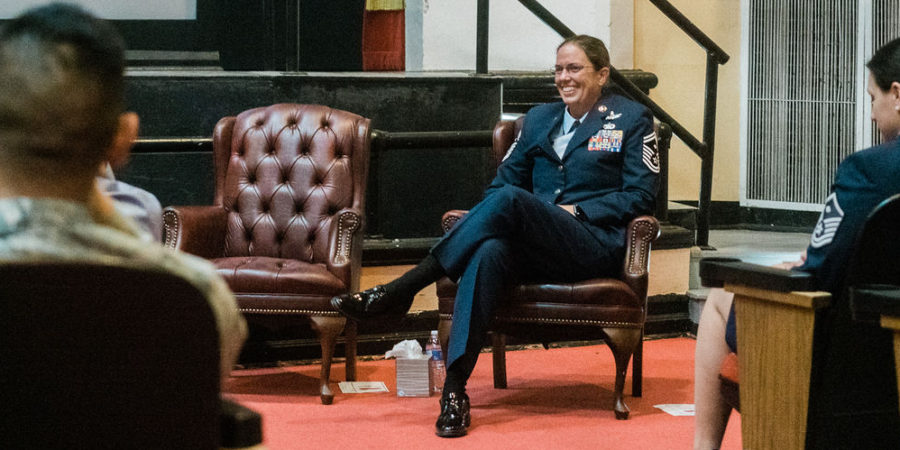When Jenny Thielke was growing up in Asheville, North Carolina and later on in Northern Virginia, she didn’t realize she was lesbian. She didn’t really date men or women, and as soon as she graduated high school in 1996, she enlisted in the United States Air Force. She started her career working in radio operations and communications.
Several years later, in 2000, Thielke met a woman she was interested in and had the epiphany that she was gay. But Don’t Ask, Don’t Tell was still in effect — legislation that for 17 years banned gay or lesbian troops from serving openly, with getting kicked out as the consequence if they were found out. It would be 10 more years before Don’t Ask, Don’t Tell was repealed and she could live openly.
Once Don’t Ask, Don’t Tell was repealed in 2010 under President Obama, Thielke was able to come out and marry her partner, Karon, in a state that allowed same-sex marriage. Soon after, her wife was able to enjoy all of the benefits that opposite-sex spouses had always had access to.
Despite having to compartmentalize her personal and professional life for much of her service, Thielke’s career progressed rapidly. In 2013, she became a First Sergeant, a special position that entails counseling and consulting troops on matters such as discipline, health, morale, wellbeing, and personal problems.
This important job requires being on call 24/7 to help troops with any issue, whether professional or personal. Thielke mentored thousands of troops throughout her career, and once she was able to live openly as gay, many LGBTQ Airmen came to her for support or advice, knowing she could relate and would help them.
Thielke spent the last stint of her career stationed at Joint Base San Antonio, and in November, the 40-year-old Senior Master Sergeant retired after 22 years of service. Following retirement, Thielke and her wife relocated to Albuquerque, New Mexico, where Thielke landed a job working at Kirtland Air Force Base for a small contracting company in space technology.
While she loved her time mentoring and helping troops, she’s excited to no longer be on call at all times. However, she’s still willing to be of service; in fact, as recently as December of this year, she was contacted by a transgender troop she knew in her past who needed moral support, and Thielke delivered.
This is Thielke’s story of serving in the military in the closet for a decade, coming out following the repeal of Don’t Ask, Don’t Tell, and using her experiences to support other LGBTQ+ troops.
Profiles in Pride: When did you realize you were gay, and what did coming out look like for you?
Jenny Thielke: I had already joined the military. I joined in 1996, and I hadn’t had any relationships with men or women up to that point. I think I always knew that something was different about me, but I couldn’t sum it up. I hadn’t really realized I was gay until I met someone, which was in 2000 or 2001. It was a painful process because my parents had a hard time understanding my relationship.
I was in that relationship for about a year, and then didn’t have a relationship for a long time. I had a relationship with a man to see if I could be happy and make my parents happy, and that didn’t work out. Then Karon and I met in 2006 or 2007.
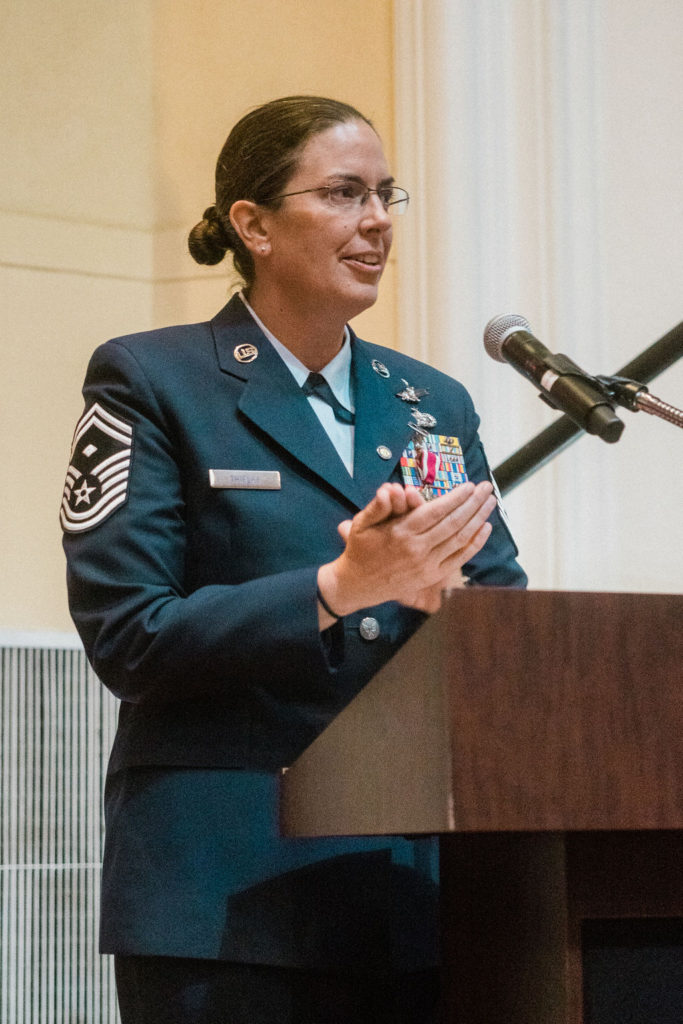
PIP: Once you realized you were gay, what was it like serving under Don’t Ask, Don’t Tell?
JT: It was very difficult, because I had to live two very separate lives. And sometimes three separate lives because I was separated from my family, the military didn’t support me, and then I had my relationship. Everything was like a hidden secret; it was just tough. I had to refer to the person I was dating as “my friend.” It was ridiculous.
PIP: Do you remember what you were doing or how you felt when you heard that Don’t Ask, Don’t Tell was repealed?
JT: Yeah, I happened to be working. I was flying satellites at the time; I was doing missile warning. There’s a lot of down time; if there were no missiles being launched, then we didn’t really have work, so we’d watch TV. During the day we’d watch CNN, and at night we would watch movies. It was a day shift and CNN had been talking about the possible repeal for a couple days. The day they said it was going to drop, there was another peer on the floor with me, and he said, “I’m not going to serve in the military if faggots are going to serve.” And I thought, what an asshole. He had no idea, but it just showed some naiveness and idiocracy amongst my peers who I thought were friends. That took me aback.
We were excited at home and quiet at work. For those who did know, we didn’t have to say anything. For those who didn’t know, we felt that we didn’t need to tell them anything. In fact, we were never really publicly out until I became a First Sergeant. When I showed up to my assignment in South Dakota, Karon and I decided we were going to tell the commander upfront what was going on — that we were a same-sex couple, because they were just getting ready to start allowing dependents to get ID cards.
I didn’t want this to be a big thing on base; it was such a small base in the middle of nowhere. But I was worried about my commander hearing the news from someone else that his First Sergeant went in and got her wife an ID card. I was really apprehensive about telling him about it — he’s a colonel now — and I just said, “Sir, we’re going to drive to Minnesota in a couple weeks and get married since that’s a state that recognizes it. My wife’s name is Karon and she’s a chef.” And he said, “OK, cool!” That took some immediate stress off right away.
Then I made a private appointment for Karon to get her ID card because I didn’t know how they were going to respond. That was in the fall of 2013. Then in the winter I got nominated for First Sergeant of the Year. When you win an annual award and they announce you and your partner, they walk you underneath the swords.
So I’d told my command chief, “Listen sir, I’d like my spouse to walk me down for this annual award nomination.” He said, “Well, it’s your choice.” I thought, what an asshole…this is not a choice. It would be so much easier to be heterosexual and not have to worry about this shit. I decided, screw it, Karon will walk down with me.
What made it even more beautiful is that Karon also got nominated for an award, so we had to walk twice. At that point, the whole base was very aware, and it really started opening some doors, because Airmen across the base would come talk to me about issues they were having as same-sex couples. It was kind of a blessing in disguise since I was able to help other LGBTQ troops.
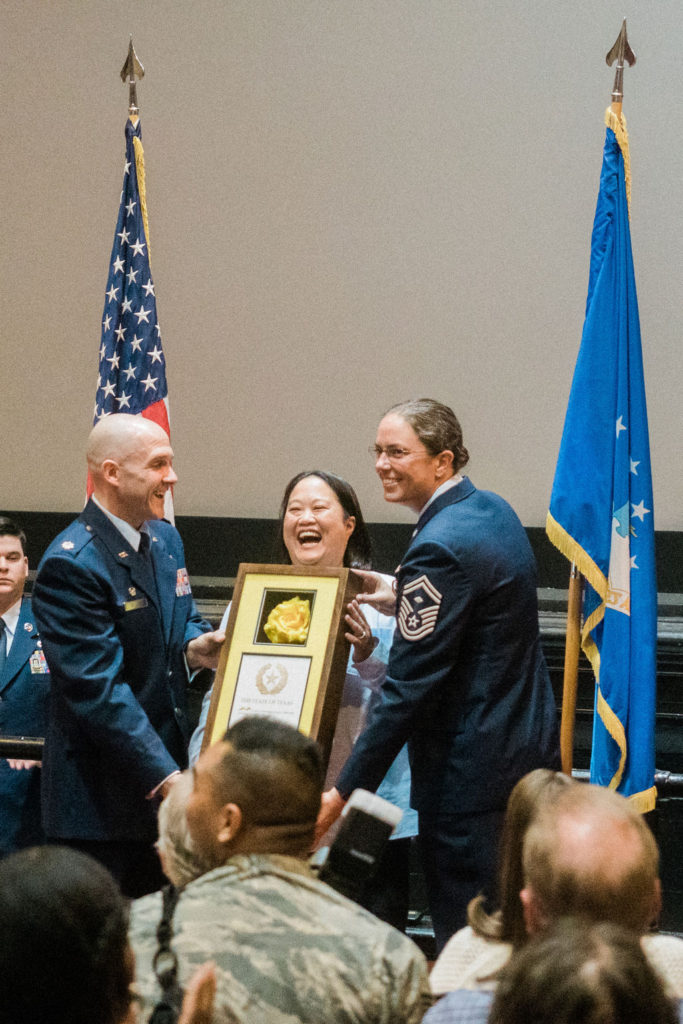
PIP: Was there an adjustment period for you of getting used being out in the military?
JT: No, not really; Karon got a job on base right away. I was a First Sergeant in a maintenance unit at the time, so I was very busy, and it just became pretty routine for us. It was really almost a non-issue. It was just like, “That’s Sergeant Thielke’s wife,” just like any other spouse. It was very welcoming.
I had one commander who I think always knew, but he always wanted to make sure that he said and acted the right way, which he already did to begin with. He just became hyperaware, which made me more uncomfortable. But he did it out of the goodness in his heart.
PIP: It sounds like as a First Sergeant, you often got to help or support other LGBTQ troops?
JT: Oh yeah, there were a couple females who were in same-sex relationships. There was one in particular I really remember; she and her wife had a baby. She was getting ready to deploy, I think she was going to Southwest Asia, and her wife was pregnant in Florida. They were worried that my active duty member wasn’t going to get put on the birth certificate. I had to send some emails up to policy. I really started poking the bear of, “Hey, what’s my same-sex member going to get for parental leave? How are we going to do this?” I think we ended up giving her parental leave, even though it wasn’t in policy yet.
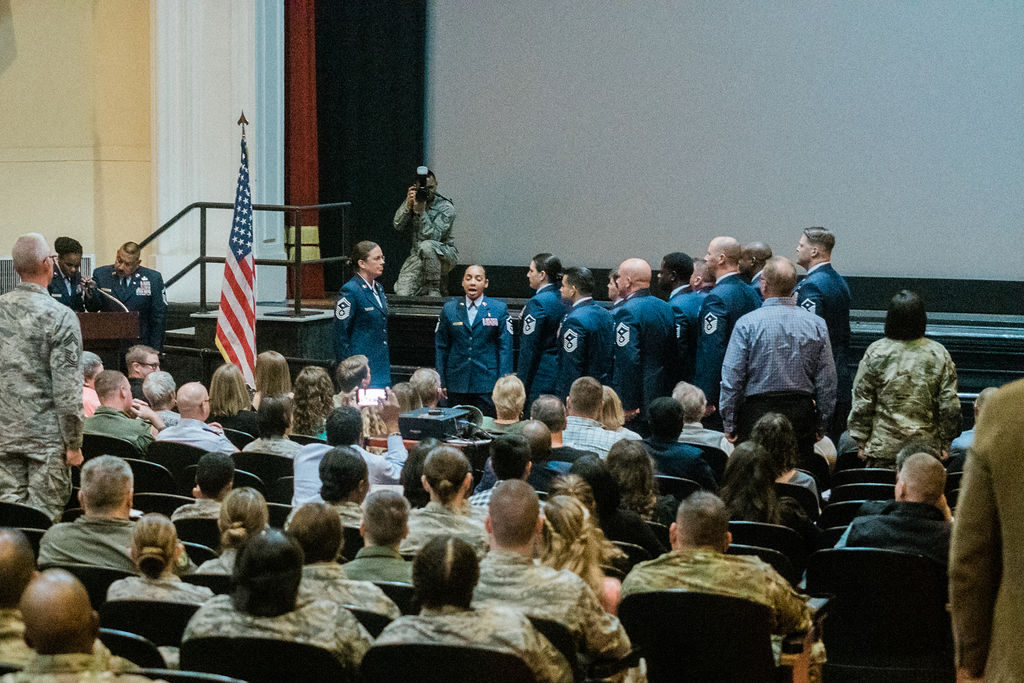
PIP: What about when the ban was lifted on transgender troops during the Obama administration?
JT: That was pretty amazing too, because they kept saying the transgender policy was going to drop in July. I had this Tech Sergeant who’d gotten in some trouble for some shenanigans. He was male at the time. A couple days before the drop, he came to me — she now — and said, “I need some help.”
I asked what they needed help with, and she came out to me. She said that this policy was going to drop and asked if it would be OK to go to the mall and public places presenting as female. I was really taken aback; I had no idea, but she felt comfortable coming to me. Keep in mind, we’d just finished an Article 15 [meaning she was charged with a violation of the Uniform Code of Military Justice] and she had just lost a stripe.
A lot of the time, the First Sergeant is a bad guy in all of that, but she came back and she said, “I trust you, I’m comfortable with you; you talk openly about your wife at commander’s calls, and I feel like this is something you can help me with.” And I did.
So I started learning a whole bunch of stuff about transgender people. The base where I was at the time, Ellsworth, is so small, so we had to reach out to someone in medical at San Antonio to get the approval process going. I worked with her until the day I left. She’s fully transitioned and out of the military now, but she did successfully transition from male to female in a maintenance squadron. That is huge to begin with, because maintainers can be awful, but they were all very accepting.
PIP: Once the transgender service ban was lifted, you gave the required transgender awareness training to many troops. Did you volunteer to do this?
JT: Yes; the woman who was second in charge at Air Force Personnel Center in San Antonio, where I was First Sergeant at the time, said this transgender training had come down. We were in a staff meeting and I said, “I’ll give it, I’m pretty familiar with it!” She agreed, so I gave it to everybody. It was comfortable for me because I was already familiar with walking that walk with my prior troop.
There was some skepticism at the training, and upfront I said, “I know that you guys are going to go back to your offices and talk about this. But this all revolves around dignity and respect. This could be your kid one day, this could be your mom or sister or dad — these are people who walk amongst us every single day. And the moment you open your mouth in ugliness is the first sign that nobody is going to trust you.”
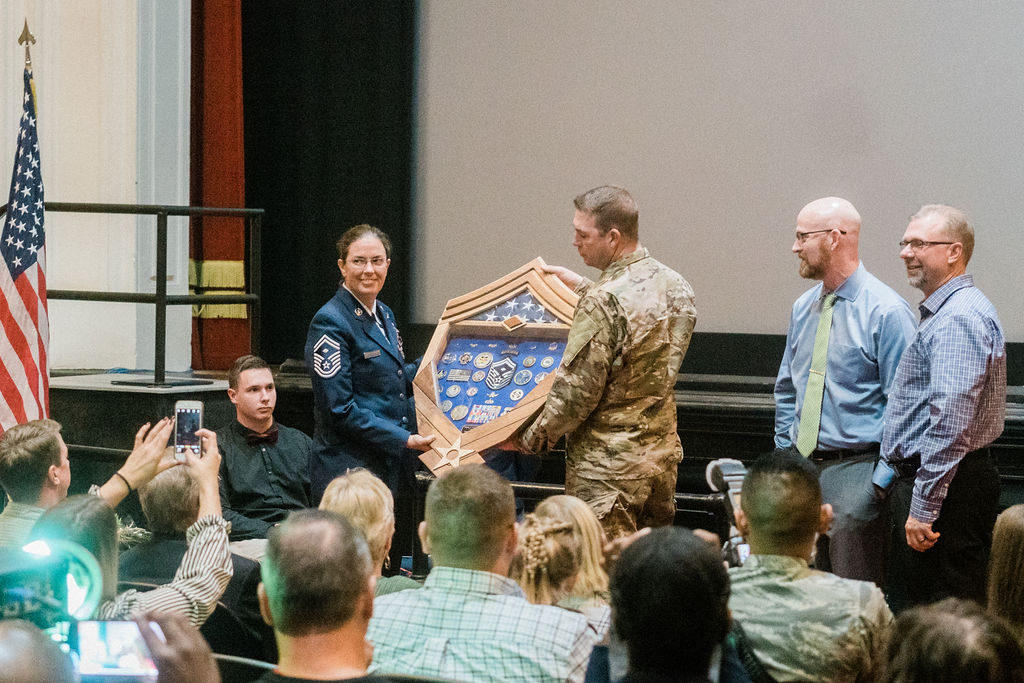
PIP: Absolutely. Did your family ever end up coming around?
JT: We contact each other, but it’s not frequent. There have been and continue to be moments of hope, but it’s been very difficult overall. The military has always been our biggest family, from beginning to end. From the day I turned 18 until the day I walked away, the military family has always been — despite who we decide to sleep with — a fantastic support system.
PIP: Before we go, do you want to share anything else about living through Don’t Ask, Don’t Tell or serving in the military?
JT: For us, we just feel like this has all been a blessing. We never expected this. I’m happy that I can openly serve. We never expected that Karon would get medical benefits, and that has been amazing.
Karon is adopted from Vietnam and she came over pretty sick when she was a baby and has a lot of health issues. Being able to add her to insurance was a financial blessing to us, because we’d be asking each other, “OK, do you need to go the ER? How bad is it? Like are you going to die?”
A lot of people take the medical system we have for granted, so we were so thankful when they said, “Yep, she’ll be treated just like another dependent.” We were really taken aback and have really considered this a blessing. For a while there, I think we felt like another shoe was going to drop. But we’re glad that everything has evolved the way it has.

